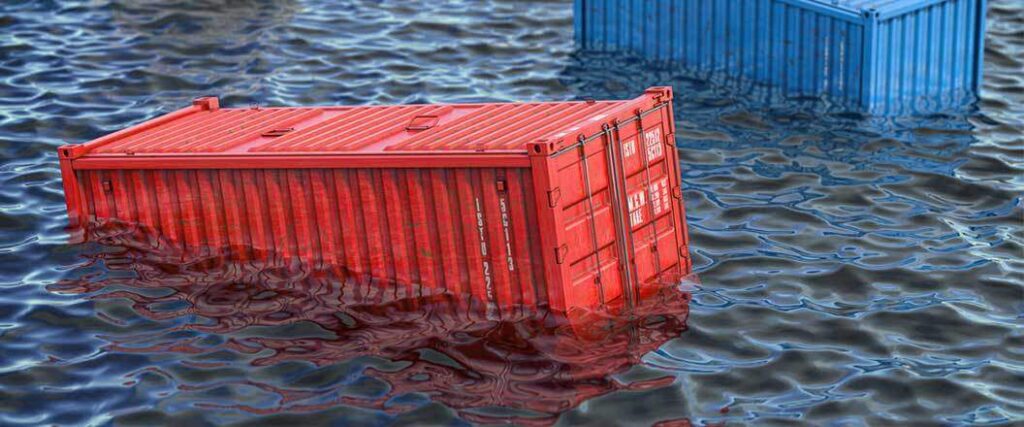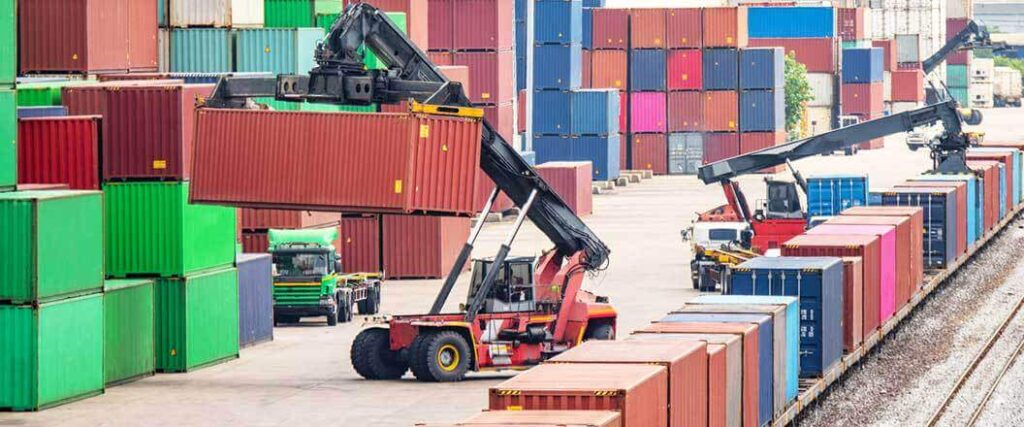Container cargo insurance is an essential safeguard for businesses involved in the transportation of goods. Without it, freight traveling overseas becomes a high-risk venture with many financial pitfalls. Therefore, shippers opt to protect their loads of cargo.
As defined by the American Association of Freight Insurance, container cargo insurance provides coverage for goods transported in shipping boxes. The dangers it protects against includes:
Shippers can obtain container protection simply by finding a legitimate provider and choosing a good level of coverage.
Businesses should understand the intricacies of container cargo insurance before purchasing this protection for their freight.
Container cargo insurance is a type of coverage that provides financial protection for containerized cargo. This form of protection provides an important layer of security, safeguarding shippers from the financial losses that can occur if their cargo is lost or damaged for any reason.
There are many risks that can come with shipping freight to another country. Fortunately, most container cargo insurance policies provide worldwide coverage. This means that shippers will have protection no matter where their goods are being transported.
With businesses cargo insurance for containerized goods, companies know their products are covered and will be able to focus more on other parts of their operations.

The cost of container shipping insurance rates is around 0.5% to 2% of the total value of the shipment. That said, businesses should know what influences these expenses. This can help them take steps to reduce the amount they’ll have to pay.
These include:
All shippers sending a container of international cargo overseas should be aware of how these factors will affect the cost of insurance.
The type of goods being shipped plays a crucial role in determining the cost of insurance. Certain items require higher premiums due to the increased risk involved.
This can include the following types of cargo:
High-value items typically have greater insurance premiums due to the increased financial risk that comes with shipping them overseas. For instance, a shipment of pricey laptops would likely have a more expensive rate than a shipment of textiles.
Fragile items, like glassware or ceramics, are more prone to damage during transport, especially given how roughly cargo containers are handled. The increased risk of breakage can lead to higher insurance rates.
Fragile goods can include the following:
Goods classified as hazardous usually require higher insurance premiums. There are a total of nine different hazard classes shippers should be familiar with. These materials pose additional risks during transit, including potential damage to other goods or the container itself. Workers on vessels and at ports could be injured by this cargo as well.
Perishable goods might attract higher insurance rates due to the risk of spoilage during transit. Temperature fluctuations, delays and equipment failures could all result in such goods becoming unfit for sale.
Perishable items include:
Despite containers serving as a protective shell for cargo traveling overseas, there’s still the possibility that damage could occur. Therefore, protecting cargo is a great way to ensure ocean freight safety.
The condition of the shipping container can also affect insurance costs. A well-maintained cargo box can help reduce expenses, while decrepit ones will drive prices up.
The quality of a container is determined by the following:
Older equipment or those with poor maintenance will raise the cost of insurance for cargo containers. Boxes that are in bad shape will be more susceptible to damage, which in turn could harm the goods inside.
The security measures on a box could raise or lower the cost of insurance as well. Equipment that has advanced security measures, such as high-quality locks or alarm systems, will have lower premiums.
Containers deemed to be seaworthy will be less for shippers to insure. Therefore, it’s best for businesses to use newer equipment for their shipments. Fresher containers are structurally sound and properly waterproofed.
The level of container cargo insurance coverage can also have an impact on rates. Shippers will need to consider the value of their freight to determine what kind of protection they should get. This includes reviewing the potential risks that could cause harm to their goods.
Shippers can get one of the three levels of protection:
Full coverage policies offer compensation for the total value of goods in case of a loss. Despite this comprehensive level of protection, these policies typically have higher premiums. With partial coverage, only a certain amount of the shipment is covered under the plan. Therefore, insurance payouts are less and premiums are cheaper.
The excess or deductible has an effect on the amount of coverage. Higher deductibles mean the shipper takes on more risk and will have to pay more out-of-pocket in case of a claim. That said, this can lower the amount of a premium.
Shippers could also choose not to obtain international shipping container insurance. However, not having coverage on freight isn’t a good idea. There are many things that can go wrong when sending a container overseas that shippers should have protection against.
Insurance costs for container shipping will be influenced by the route and destination of the load. Certain countries and the paths used to send goods have more risk associated with them than others.
Insurance companies determine how dangerous a route and final destination can be based on the following:
The further a shipper has to send their goods, the higher premiums will be due to increased risk exposure. More time at sea means a higher chance of encountering adverse weather or other dangers that could harm freight.
Port conditions in the country that the cargo will be sent to can cause rates to rise or fall as well. If these locations have poor infrastructure or high traffic, the risk of damage to the container and the goods inside is more likely to occur. Ports that have better infrastructure are safer and the danger to cargo is much less.
Insurance companies consider geographic risks before they decide on a premium. Certain routes can be dangerous for containers to travel on due to piracy. The International Chamber of Commerce actually tracks these events on a live map that businesses should check.
Some bodies of water can be more prone to weather events that cause damage to freight. Additionally, destination countries might be politically unstable. Insurance premiums can be higher when shipping to these locations.
Securing insurance for a shipping container is extremely important for businesses that send freight internationally. Fortunately, the process of getting this form of protection is very straight forward.
Shippers will only need to complete the following steps:
Carefully completing these steps will lead a business to a reliable provider of container cargo insurance and the right policy to protect their freight.
Choosing a reliable provider of container cargo insurance is the first step businesses will need to follow. This requires careful research on each company that offers this service.
Shippers can judge insurance providers based on the following:
Businesses should look for providers that have a solid reputation in the market. Insurance agencies that have positive reviews and history of prompt claim settlement are good indicators to consider.
Shippers should also look for providers that specialize in container cargo protection. Companies that only offer this service are more likely to have suitable coverage options. Providers of this variety also understand the unique needs and risks associated with cargo box shipping.
The financial stability of a company that offers container cargo insurance can determine the reliability of their services. Providers that are well-off will have the capacity to pay out claims, even in the event of large-scale disasters.
Finally, shippers should be on the lookout for insurance companies that offer flexible policies that can be customized to fit specific transportation needs. Every shipment of containerized cargo is different and businesses need to know they can cover their freight.
Once a business has decided on an international shipping container insurance provider, they need to determine the level of coverage for their freight.
To do this, shippers should consider the following:
The insurance coverage should protect the total value of the goods being shipped. This provides maximum protection in case of a total loss. Shippers should carefully conduct a risk assessment to understand the potential perils during transit.
Some countries and routes are safer than others. A risk assessment can help determine if additional coverage is needed based on the dangers that are present. Businesses should also consider any legal requirements to insure their freight.
Countries and shipping lines may have specific requirements regarding the level of protection that shippers will have to use. Depending on the payment terms decided between the exporter and importers, coverage like CIF insurance might be needed as well.

While the loss of shipping containers is relatively rare, it does happen. The World Shipping Council (WSC) keeps track of how often these events occur. This allows importer and exporters to assess the dangers that containerized cargo can face while at sea. We’ve included some data from the WSC on the amount of containers lost the past few years.
| Year | Amount of Containers Lost |
| 2022 | 600 |
| 2021 | 2,300 |
| 2020 | 3,950 |
| 2019 | 500 |
Provided by the 2023 WSC Container Lost At Sea 2023 Report
These numbers are rough estimates of the amount of containers that have been lost the past four years. Currently, there is a downward trend in lost freight at sea. That said, these numbers can always spike upward, as they did in 2020 and 2021. Therefore, shippers should always have container cargo insurance in case something goes wrong with their shipment.
At Freight Insurance Coverage, we specialize in mitigating risks associated with transporting goods. Our team of professionals has extensive experience in the transportation industry. Therefore, we know how important it is to protect cargo that’s on the move.
And, if you ship your container with us, we can automatically offer cargo insurance on your shipment. We offer insurance for the following types of shipments:
Each of these forms of transportation have their own unique risks and challenges. Every shipment you book with Freight Insurance Coverage will have protection immediately applied. Fill out your quote to ship your cargo with the defense it deserves. You can also call our team at (866) 975-0749 if you have any questions or concerns.
Freight Insurance Coverage
315 NE 14th Street #4122
Ocala, FL 34470
I will be purchasing a 20ft shipping container and moving in August, to Slovenia. I am interested in coverage for not only the voyage but incase I have to keep it stored somewhere until I have a physical address. Is this coverage you also offer? Thanks